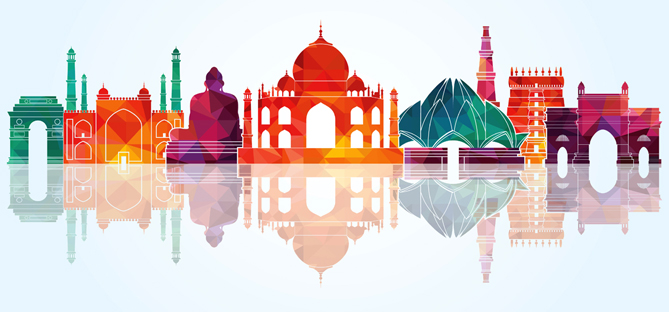India adopts OneM2M as national standard
- October 28, 2020
- Steve Rogerson

The Indian government’s Telecommunication Engineering Centre (TEC) has adopted the OneM2M specifications as a national standard. This should enable more collaboration between IoT developers to reduce the time to bring products to market.
The standard, developed by a joint global collaborative effort, has already been transposed in India by the Telecommunications Standards Development Society, India (TSDSI). The national adoption of the OneM2M standard aims to highlight the importance of collaboration, testing and certification in the development of IoT devices and software.
“We are very pleased that the OneM2M standard has been selected as a national standard in India as national governments across the globe continue to realise the immense importance of IoT,” said Enrico Scarrone, steering committee chair at OneM2M. “This announcement highlights the crucial role that OneM2M plays in helping to connect IoT applications and in enabling mass deployment across industries by limiting complexity and scalability issues.”
As India strives to deliver over 100 smart cities across the country, this standard, once incorporated into the RFPs, could not only become a catalyst of growth for the Indian IoT market and software industry but could ensure interoperability and security in the entire ecosystem and bring India closer to becoming Digital India.
As India places renewed emphasis on IoT standardisation in areas such as smart cities, the OneM2M standard can underline the significance of a standardised framework in helping enable a smarter and more secure future.
“Adoption of these standards helps establish the much-needed standardised technology framework for providing M2M services in India,” said Pamela Kumar, director-general at TSDSI. “It enables users and application service providers in various vertical domains to use vertical agnostic end-to-end M2M platforms, with well-defined common service functionalities. This is expected to accelerate deployment of M2M services across verticals, and facilitate optimal utilisation of communication layer resources.”
Made up of more than 200 members organisations, OneM2M specifications provide a framework to support applications and services. As the OneM2M platform has been developed in an open environment and has clear governance, this helps facilitate trust in its specifications. In recent years, OneM2M has hosted numerous IoT workshops and industry days across India as the country seeks to mandate standards for the national implementation of IoT-based systems and applications.
“IoT and M2M will play a significant role in the expansion of the digitally connected society and the realisation of the Smart City Mission programme in India,” said Sh Udai Srivastava, senior DDG at TEC. “We are pleased to announce the adoption of OneM2M global standards as national standards for the IoT and M2M ecosystem in India. We have completed this adoption process after following an exhaustive process of consultation as well as critical analysis by a consultative committee.”
OneM2M is a global standards initiative that covers requirements, architecture, API specifications, security and interoperability for M2M and IoT technologies. It was formed in 2012 and consists of eight standards development organisations: Arib (Japan), Atis (USA), CCSA (China), Etsi (Europe), TIA (USA), TSDSI (India), TTA (Korea) and TTC (Japan), together with industry forums or consortiums and more than 200 member organisations.
OneM2M specifications provide a framework to support applications and services such as the smart grid, connected car, home automation, public safety and health. It encourages industry associations and forums with specific application requirements to participate.




